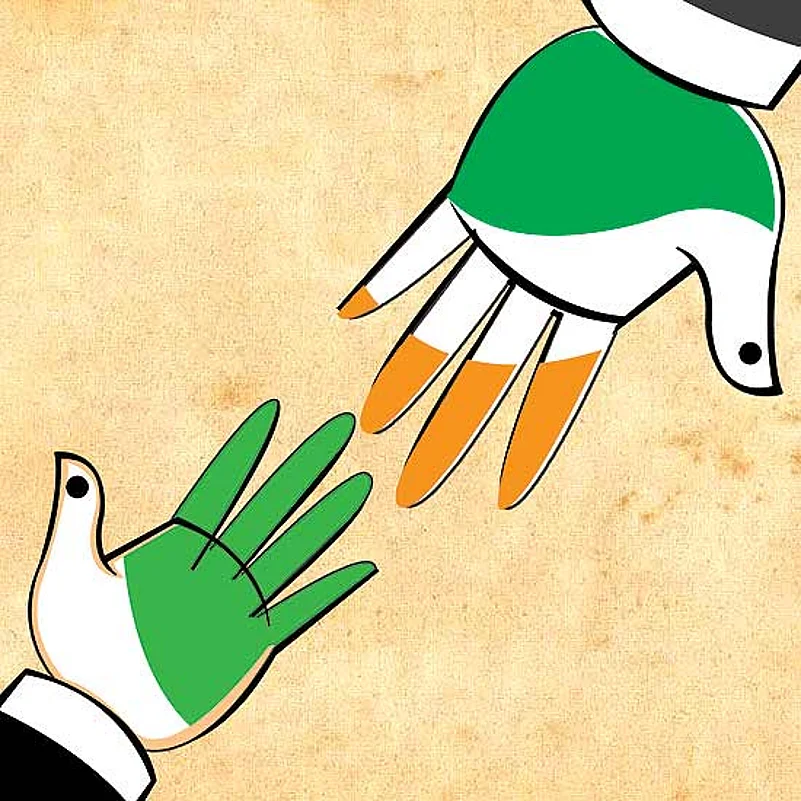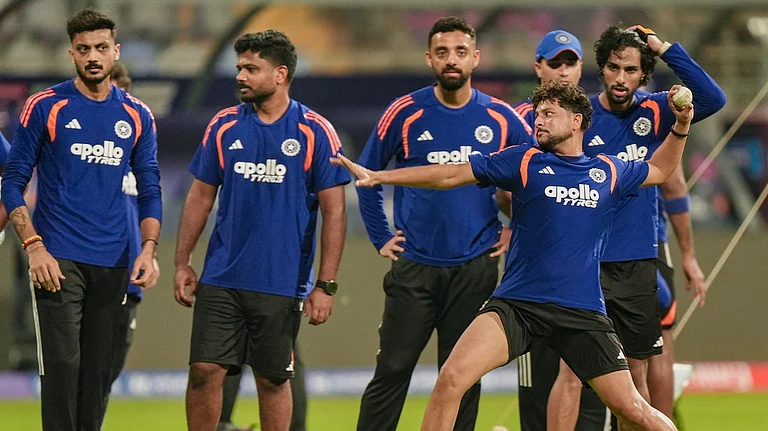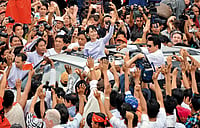In September last year, a strange meeting took place in Delhi. Over drinks and a lavish supply of cheese at the residence of a retired armed forces officer, a former national security advisor of Pakistan, Major General Mahmud Ali Durrani (retd), told those sitting around the dining table that a strategic shift had taken place in the Pakistani establishment’s thinking about India. Of those present, all but two were retired but still continue to influence foreign policy debate. They had served in the past in the prime minister’s office, the foreign office, the Intelligence Bureau and the armed forces. None of them believed Durrani. Indeed, they assiduously kept their focus on the Brie, the Camembert, toast and Australian grapes.
Durrani said that although he was in India for a conference, he had met all the “relevant people” before coming to Delhi. It was clear he had also been briefed by the Pakistan army. He emphasised that Pakistan was convinced a perpetual conflict with India was not sustainable. There had been a change of heart and he urged those present to send a signal that India recognised this.
“You have had a change of heart, you should send a signal,” said one of the worthies. Another asked that gangster Dawood Ibrahim—believed to be living in Karachi—be handed over. A third said that since both sides knew exactly what the other was up to, Pakistan only had to act on India’s concerns quietly. “We will come to know,” he suggested. Others continued with the Brie and Camembert.
At the end of the discussion that evening, I had to escort Durrani to a restaurant in Old Delhi for dinner. As we got into his car, he exclaimed with a long sigh, “Here I am, telling them something extremely significant, but your danda-maar brigade is still caught up in a time-warp!” But, I reminded him, he himself had wanted a meeting with the danda-maar brigade. Unless one convinces the hardliners, the relationship will go nowhere, he argued. Two months later, in November, Islamabad announced its decision to grant most favoured nation (MFN) status to India. The danda-maar brigade still refused to recognise the strategic shift. Citing domestic controversy over the decision, they exclaimed, “Aha, see how they are backtracking in the face of criticism.”
However, the fact is that trade liberalisation has continued. Despite opposition from the usual suspects, the MFN decision is likely to be implemented fully by December 2012. Businesses in both countries have welcomed the prospect of exponential growth in bilateral trade, an integrated checkpost has been opened at the Attari border to facilitate trade, Indian trade shows are being held in Pakistan and vice-versa and India has even opened the doors to FDI from Pakistan.
The hardliners remained unconvinced even when the Pakistan army chief, Gen Ashfaq Kayani, suggested demilitarisation of the Siachen glacier and peaceful coexistence with India. What if the wily Pakistanis occupied Siachen once we vacate our posts, they asked? It is true that the Pakistan army is nowhere near the Siachen glacier, which is fully under Indian control. However, maintaining that deployment costs upwards of Rs 3 crore a day. And it is possible to jointly monitor the area using technology; also have joint air patrolling.
In any case, the significance of what Gen Kayani said lies not in the pullout itself, but in the strategic shift it represents. For the first time, the Pakistan army and the politicians are on the same page on improving ties with India. Therefore, when Prime Minister Yousaf Raza Gilani says that the era of wars with India is over, we should not set up hoops for him to jump through before taking him seriously. Indian diplomacy must not become a perpetual argument for estrangement. If the era of wars is not yet over, India should help end it. There are a number of things that India and Pakistan can immediately implement, besides the much-needed visa liberalisation. These include the reopening of consulates in Karachi and Mumbai, scheduling routine meetings between the two PMs even without big agenda items in order to promote confidence; and encouraging exchange visits of students to counter the development of negative mindsets.
The Siachen and the Sir Creek maritime boundary disputes have been all but worked out. Both sides know what is to be done. Meanwhile, let ministers conduct the composite dialogue instead of babus. The chemistry between the countries will change as the political mind is always superior, because it has imagination. And instead of ignoring it, Kashmir should be discussed within a political paradigm rather than a security one. Nor should terrorism be ignored—there are things that the two countries need to do separately and there are things they ought to do jointly. Today, in Pakistan, the constituency for peace with India seems to encompass not only ordinary folk but even the army. This strategic shift is a tide which ought to be taken at the flood.





















